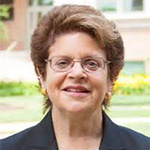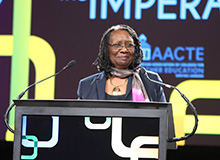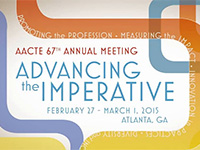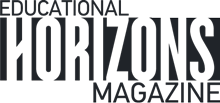26 Mar2015
By Deborah Koolbeck
Note: AACTE offered a free webinar to members March 25 and 26 about the next steps on the proposed regulations for teacher preparation programs. A recording of the webinar is available here.
Two new bills introduced in Congress seek to impede the U.S. Department of Education’s attempt to regulate teacher preparation programs. The Supporting Academic Freedom through Regulatory Relief Act (H.R. 970), introduced in the U.S. House of Representatives by Representative Virginia Foxx (R-NC), and its companion bill in the U.S. Senate, S. 559, introduced by Senator Richard Burr (R-NC), seek to achieve the following objectives:
26 Mar2015
AACTE Breakfast Was Forum for Discussion
By Linda McKee
Nearly 300 educators from around the country packed a February 28 breakfast session at the AACTE Annual Meeting in Atlanta to get updates and ask questions about edTPA. The conversation addressed questions about regional scoring, the line between helping students and coaching them on their edTPA portfolios, and other issues.
First, though, teacher educators were congratulated for their role in edTPA’s progress. They also were reminded that for edTPA to be a meaningful assessment for educator preparation programs and teacher candidates, it must be about more than compliance.
25 Mar2015
By Nicole Merino

A Conversation With Harriet “Niki” Fayne, Dean of Education at Lehman College
Harriet “Niki” Fayne, dean of education at Lehman College (City University of New York) in the Bronx, isn’t about to say that edTPA was easy for her faculty and students, or that it is the final answer for teacher preparation. But she does say this: edTPA moves the profession in the direction of strengthening the skills of beginning teachers.
24 Mar2015
By Kristin McCabe
The AACTE Learning Center now includes recordings of all six major forums from the 67th AACTE Annual Meeting in Atlanta. Anyone who was registered for the conference may log in to the Learning Center to view the videos and slides from the forums:
23 Mar2015
By Donna Sacco, Amanda Bush and Christine DeGregory
In the three decades since A Nation at Risk was released, the state of America’s education system relative to other countries’ has been a matter of heated debate. Along the way, public opinion has placed the onus for our schools’ perceived failure on teachers and their preparation, and education policy has echoed this assumption through an array of accountability measures for teachers and preparation programs.
One driver of the continued misconception about U.S. teacher quality is the highly publicized results of international large-scale education assessments (ILSAs) that suggest America’s students are performing far below other nations. At January’s press briefing for the report The Iceberg Effect, lead researcher and report author James Harvey explained that ILSAs have been misused and that the science behind them is highly questionable, akin to comparing apples to oranges.
19 Mar2015
By Michael Feuer
This post originally appeared in Dean Feuer’s blog, “Feuer Consideration,” and is reposted with permission. The views expressed in this post do not necessarily reflect the views of AACTE.
The dean of the Curry School of Education at the University of Virginia recently wrote an op-ed for The Washington Post that was well meaning but misleading. It was surprising and disappointing to see a distinguished educator miss an opportunity to dispel conventional myths and clarify for the general public what is really going on in the world of teacher preparation and its evaluation.
For those who may have missed Robert Pianta’s short article, here is a summary and rebuttal.
18 Mar2015
By Etta R. Hollins

Editor’s Note: Professor Hollins inspired attendees of AACTE’s recent Annual Meeting in Atlanta during the Speaker Spotlight Session. (View a video recording of her speech here, and read another version in this Hechinger Report piece, which includes the video she played during her address.) To follow up on her presentation, we invited Hollins to explore her topic in a series of blogs for Ed Prep Matters. This is the first post in the series.
The way teaching and learning teaching are conceptualized influences approaches and practices in both. For example, where teaching is viewed as an interpretive process, learning teaching also requires an interpretive process for constructing the habits of mind and deep knowledge of approaches and practices necessary for facilitating meaningful, purposeful, and productive learning experiences for students in different contexts, from different cultural and experiential backgrounds, and with different developmental needs.
17 Mar2015
By Kristin McCabe

Were you among the 2,025 participants in AACTE’s recent Annual Meeting in Atlanta?
There was so much to see and do that even those in attendance couldn’t do it all! Don’t worry—we have a variety of online resources that will help to fill you in and continue the conversation on “Advancing the Imperative.”
17 Mar2015
By Mark LaCelle-Peterson
Representatives from AACTE and member institutions joined thousands of other educators convening in Washington, DC, last weekend at the National Board for Professional Teaching Standards’ star-studded second annual Teaching & Learning conference.
AACTE President/CEO Sharon P. Robinson spoke at a plenary session on preparing novice teachers, joining a panel that also included Linda Darling-Hammond (Stanford University, CA) and Terry Holliday (Kentucky commissioner of education), moderated by American Federation of Teachers President Randi Weingarten.
17 Mar2015
By Gloriatine Jones

Have you seen the February/March 2015 issue of Educational Horizons from Pi Lambda Theta?
Thanks to a partnership with Phi Delta Kappa and Pi Lambda Theta, all AACTE members receive free online access to this magazine for future teachers as a benefit of their AACTE membership. Chief Representatives also receive each issue by mail.
Here are some highlights from the current issue to share with your students:
17 Mar2015
By Deborah Koolbeck
Please join me next week for a free webinar on what you can do next regarding the proposed federal regulations for teacher preparation programs.
The public comment period through the Federal Register, which closed last month, was just one piece of ongoing advocacy and outreach necessary to ensure the voice of the profession is expressed to policy makers and key stakeholders as the regulation process unfolds. Learn of the next steps for you to take on the federal proposed teacher preparation regulations.
16 Mar2015
By Amanda Bush
The discussion about developing and integrating high-quality teacher performance assessments across the continuum of teacher preparation was the highlight of several sessions offered at AACTE’s recent Annual Meeting in Atlanta, Georgia.
An audience poll during the AACTE Town Hall Meeting illustrated that most of us work in states that either have policies regarding performance assessments in place or are considering implementing such policies in the near future. It’s no wonder, then, that related sessions were well attended.
16 Mar2015
By Amanda Bush and Christine DeGregory
If any of these statements sound familiar, chances are good that you were at the AACTE Annual Meeting in Atlanta! Here are the top phrases we heard during the conference:
10 Mar2015
By Christine DeGregory
One of the things I appreciate most about conferences is how the small groups of teacher educator voices residing within our home institutions can join together with others to create an impressively large chorus—one whose collective power can provide needed volume and attention to important issues.
At the AACTE Annual Meeting in Atlanta, I was encouraged to have my quiet voice as a future teacher educator amplified, thanks to the company of so many colleagues who share my passion about creating a developmental continuum that recognizes, values, and utilizes the expertise of classroom teachers in preservice teacher preparation and induction.
10 Mar2015
By Lucy Berrier
During their meeting February 26, members of AACTE’s Board of Directors chose officers for the coming year to serve with new Board Chair Mark Ginsberg (see related press release).
Effective March 1, the Executive Committee includes the following leaders:
- Chair: Mark Ginsberg, George Mason University (VA)
- Chair-Elect: Jane Bray, Old Dominion University (VA)
- Past Chair: Julie Underwood, University of Wisconsin-Madison
- Secretary: Renée Middleton, Ohio University
- At-large: Grant Hayes, University of Central Florida, and Tim Wall, Northwest Missouri State University





